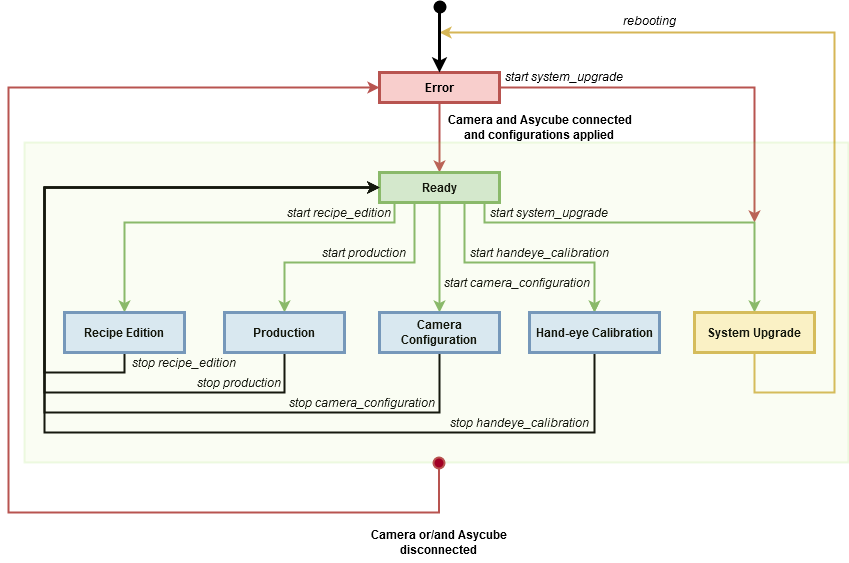Avertissement
You are reading an old version of this documentation. If you want up-to-date information, please have a look at 5.3 .EYE+ states
The internal behavior of EYE+ is divided into 7 states.
EYE+ can be in one state at a time. To switch from one state to another, first stop the current state (return to the ready state) and then start the new state.
Starting the states recipe edition, camera configuration, hand-eye calibration, system upgrade, cannot be done through TCP/IP commands but only through wizards of EYE+ Studio.

Fig. 154 EYE+ state machine
Error
This is the EYE+ state when it is not yet ready or the state if one of the devices needed for the production state is not connected (e.g. camera, Asycube). The only actions available in EYE+ Studio from this state are the upgrade and backup of the system.
Ready
The ready state is the initial or stopped state of EYE+. It waits for the starting of one of the active states (blue states in Fig. 154) or for the activation of the system upgrade state.
Recipe edition
This is the state of EYE+ when you create/modify a recipe via EYE+ Studio. When it stops, the state returns to ready.
Production
This is the most active state. From this state, EYE+ waits for requests from a PLC or a robot (must be connected to the robot port). EYE+ can manage the hopper, the camera and the Asycube in order to provide the coordinates of the next part to be picked as fast as possible. This state is directly influenced by the performance of your recipe, the camera configuration and the hand-eye calibration.
When it stops, the state returns to ready.
Camera configuration
This is the active state of EYE+ when you perform the camera configuration via EYE+ Studio. When it stops, the state returns to ready.
Hand-eye calibration
This is the active state of EYE+ when you perform the hand-eye calibration via EYE+ Studio. When it stops, the state returns to ready.
System upgrade
This is the active state of EYE+ when you perform the system upgrade via EYE+ Studio. When the system upgrade is complete, EYE+ reboots, enters the error state and returns to the ready state.